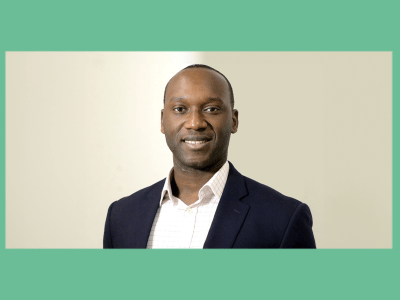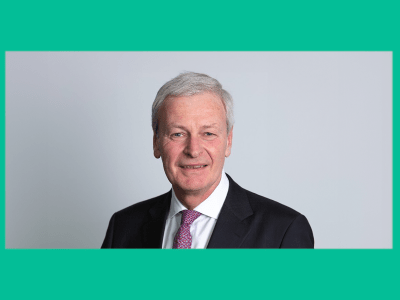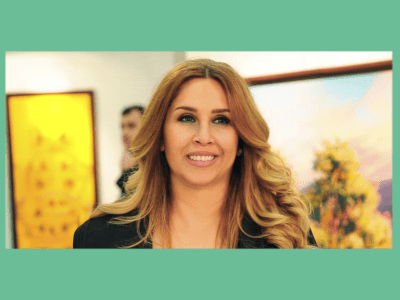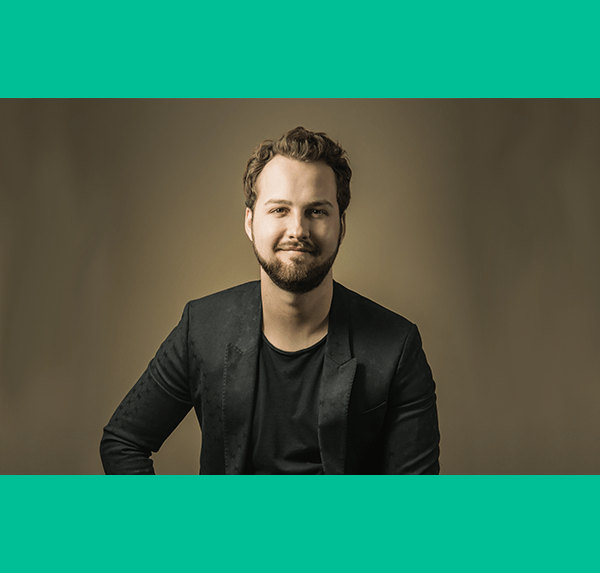Ahead of the FIFA World Cup in Russia this month, we were lucky enough to catch up with Omar Berrada, EU alumnus and Chief Operating Officer at Manchester City FC, one of the world’s most popular football clubs with millions of fans around the globe. From his experience studying at EU Business School and landing a job at FC Barcelona to his role as COO at Man City and the most rewarding aspects of his job, Omar had plenty to share with us.
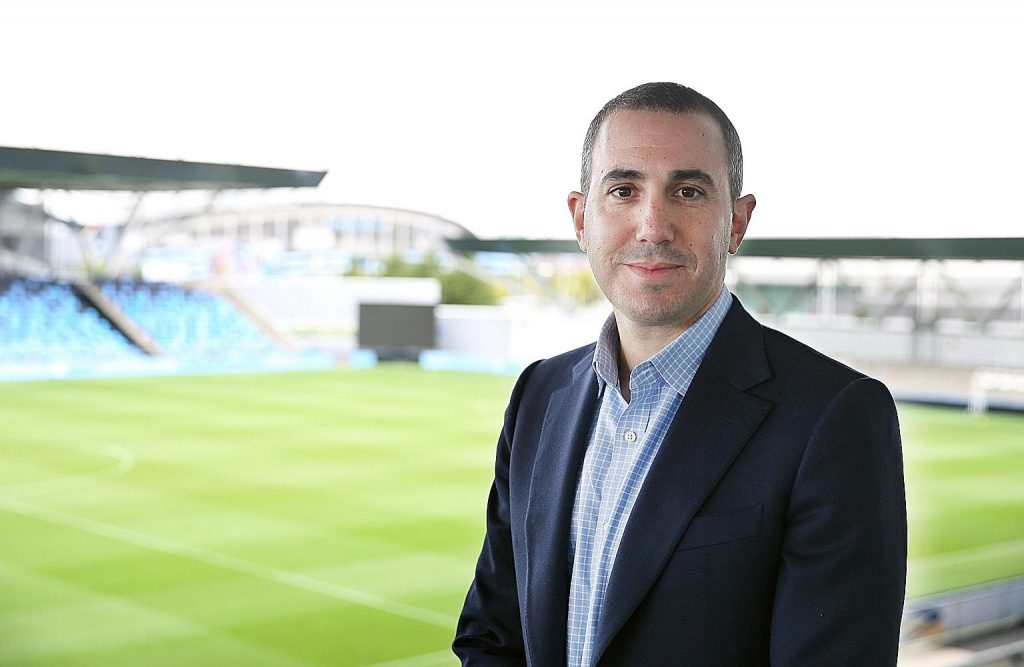

Why did you choose EU Business School for your studies?
What really attracted me to EU Business School was the fact that students have the opportunity to transfer between its European campuses. I was quick to take advantage of this as I began my studies in Brussels and then moved to Barcelona. Interestingly, I only planned to spend one year in Barcelona but I fell in love with the city and ended up staying for 15!
What did you enjoy most about your time at EU?
I really enjoyed having the opportunity to interact with and learn from people of all different nationalities and backgrounds at EU. The beauty of studying a BBA is that everyone on your course has a different professional goal so they each bring something different to the table. Some want to work for their family business while others want to join an advertising agency or go into finance. The diversity of the professors and students as well as the different interest areas made EU a really fun and stimulating place to be.
Were there any skills you learned at EU that have been particularly useful during your career?
I really valued learning from professors with successful careers in the business world as they were able to give us real-life scenarios and anecdotes to apply a range of business situations. I definitely think this helped me focus on real-life business projects when I started my career.
What does your role as COO at Man City involve?
As chief operating officer, essentially I am in charge of all the club’s business activities. The way the club is organized is that the CEO, Ferran Soriano, has two people reporting to him. One is responsible for football and the other for business – that’s me. I oversee the revenue, profit and loss, and cost control. I also work with football in terms of player contracts and transfers as they have a significant impact on profit and loss.
You’ve had an incredibly successful career. How did you get to where you are today?
I’m not going to lie, luck had a role to play in my success. When I finished my studies at EU, I started working for the global telecommunications company Tiscali as a business development manager. I was fortunate because this was during the internet boom and the company was looking for young multi-lingual, tech-savvy graduates and I fit the profile, which was largely thanks to EU. By chance, FC Barcelona got in touch with me in 2003 as they were looking for someone with expertise in new media (internet, mobiles etc.) and this is what I was doing at Tiscali. That’s where the element of luck came in. I joined FC Barcelona as Head of Sponsorship and after that, it was simply a question of hard work and dedication. I believe it’s really important to absorb information from those around you. I always try to learn as much as I can from my colleagues, management books and business articles. I think this has helped me grow in my different roles, and that’s got me where I am today.
You’ve lived all over the world and you speak four languages. Do you think it’s important to gain international experience?
I think it’s vital to gain international experience. Today, there are so many students who come out of university with good degrees that you need to offer something different to stand out from the crowd. From my experience, speaking different languages and having an international background creates an added value. It means you been have exposed to different cultures and can adapt to different environments. When I look to hire new graduates at Man City, I don’t just look at CVs, I consider their personal values and think about what kind of experiences and expertise they could share with us.
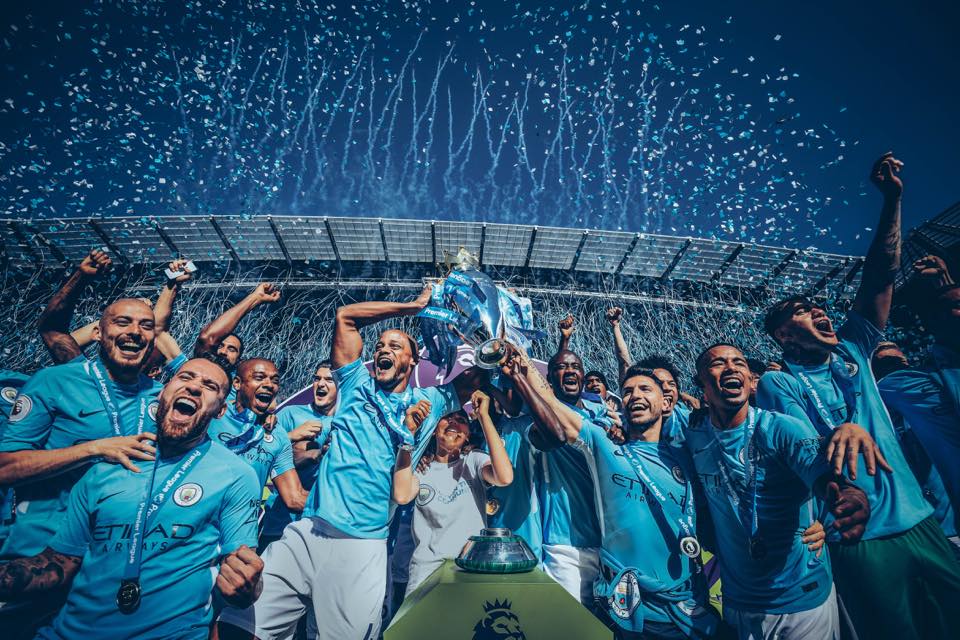

City Football Group is one of the most powerful forces in football today. What makes it so unique?
It’s the model we’ve put in place over the past five or six years. If you look at the likes of FC Barcelona, Real Madrid and Manchester United, they all have millions of followers around the world, as does Man City. However, the approach we’ve taken is to become a truly global football organization. To do this, we need to have a physical presence all over the world. For that reason, we have developed a franchise model of city-branded clubs. We have clubs in New York, Melbourne and Japan, as well as a stake in Girona FC and a stake in a club in Uruguay. This multi-club approach allows us to engage with our fans in a more meaningful way than if we just had one club in one city, even if that club is very big.
The club has a huge following on social media including Instagram and YouTube, how important is social media when it comes to engaging with fans?
Social media is very important nowadays. Fans start choosing a club when they’re around seven or eight years old and by the time they’re in their teens, they’ve chosen a club and generally, it stays the same for life. These fans engage with clubs through social media, videogames and other digital platforms. We need to offer content on these platforms that speaks to them in an engaging way so we develop a relationship and hopefully they choose us as their favorite club and it becomes a relationship for life.
How do you choose your sponsorship relationships and what do you bring to your partnerships?
We look for brands with a similar set of values. At Man City, the community is at the heart of everything we do. The club was founded as community club 120 years ago so we look for brands that contribute to the community. It’s more than just a financial transaction, it about creating content that makes sense for our fans. We have to ask ourselves what we can do to give back to our fans and show them they’re a part of the club, as well as give back to the local community. Ultimately, it’s about using football as a force for good.
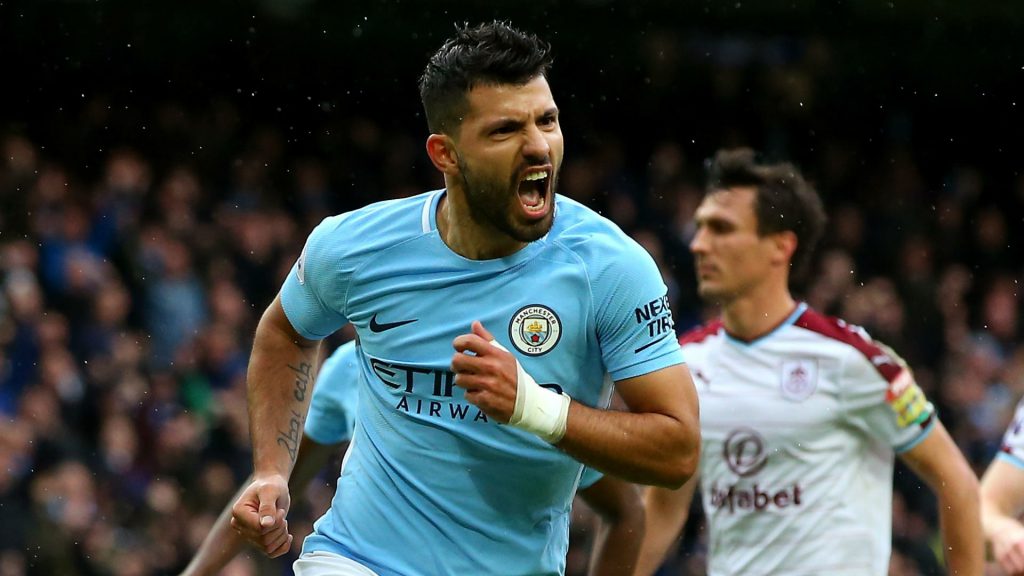

What is your favorite thing about your job?
The most rewarding part is when Man City wins a game and I see the pure joy and elation on our fans’ faces. It’s absolutely amazing, there’s nothing like it. One of my favorite moments in my entire career was in May 2012 when we won the Premier League and our first championship title in 44 years. It looked like we were going to lose but in the very last second of the game, Sergio Agüero scored and we won the title over United. It was a very special moment and for me, that’s what football is all about. It’s seeing the fans enjoying the success of the club.
What advice would you give to students on how to approach their future careers?
Be curious. Keep learning and be open to different sectors and industries. It’s important to have a broad range of personal and professional experiences. While lots of careers do require specializations, if you’re looking to become a CEO or executive of a company, having a good grasp of marketing, finance, sales and general business management will help you go far.
And more specifically for students who want to pursue careers in the sports industry?
The sports industry has become more professional over the past 15 years. You’re seeing more and more universities and business schools offering sports management courses which I think is great. In the past, you had people entering the world of sports without any specific knowledge of the industry, they just picked it up along the way. If you’re able to do a course that does specialize in sports management, then definitely do it. It’ll put you at an advantage when applying for jobs.
How to Get a Job in Football?
Find out more about studying an MBA in Sports Management at EU Business School and Omar’s thoughts about The Business of Football.

